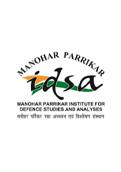Complicity of State Actors in Chittagong Arms Haul Case Revealed
India’s position stands vindicated. It had for long maintained that not only have insurgents from the north east found safe havens in Bangladeshi soil but that they have enjoyed the backing of the Bangladeshi state as well. These allegations have now been proven with the confessional statement of Md. Hafizur Rahman and Din Mohammad, the two accused in the Chittagong arms haul case. This was the largest arms haul in Bangladesh, which had taken place on April 2, 2004 in the Chittagong area.
- Sreeradha Datta
- March 09, 2009








